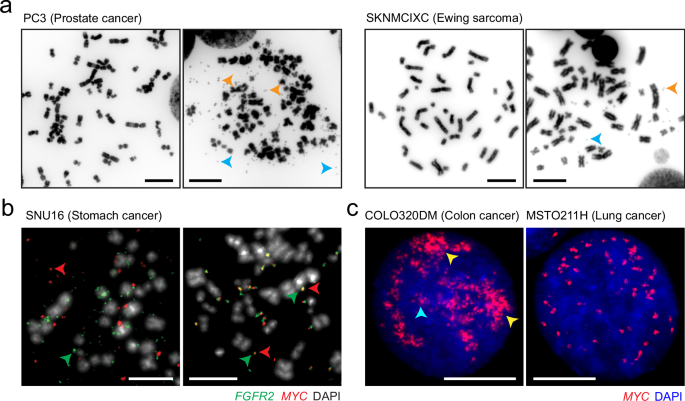Modern biology of extrachromosomal DNA: A decade-long voyage of discovery
IF 28.1
1区 生物学
Q1 CELL BIOLOGY
引用次数: 0
Abstract
Genomic instability is a hallmark of cancer and is a major driving force of tumorigenesis. A key manifestation of genomic instability is the formation of extrachromosomal DNAs (ecDNAs) — acentric, circular DNA molecules ranging from 50 kb to 5 Mb in size, distinct from chromosomes. Ontological studies have revealed that ecDNA serves as a carrier of oncogenes, immunoregulatory genes, and enhancers, capable of driving elevated transcription of its cargo genes and cancer heterogeneity, leading to rapid tumor evolution and therapy resistance. Although ecDNA was documented over half a century ago, the past decade has witnessed a surge in breakthrough discoveries about its biological functions. Here, we systematically review the modern biology of ecDNA uncovered over the last ten years, focusing on how discoveries during this pioneering stage have illuminated our understanding of ecDNA-driven transcription, heterogeneity, and cancer progression. Furthermore, we discuss ongoing efforts to target ecDNA as a novel approach to cancer therapy. This burgeoning field is entering a new phase, poised to reshape our knowledge of cancer biology and therapeutic strategies.


染色体外DNA的现代生物学:长达十年的发现之旅
基因组不稳定是癌症的一个标志,也是肿瘤发生的主要驱动力。基因组不稳定性的一个关键表现是染色体外DNA (ecDNAs)的形成——与染色体不同的无中心的环状DNA分子,大小从50 kb到5 Mb不等。本体论研究表明,ecDNA作为癌基因、免疫调节基因和增强子的载体,能够驱动其货物基因的转录升高和癌症异质性,导致肿瘤快速进化和治疗耐药性。尽管ecDNA在半个多世纪前就被记录下来,但在过去的十年里,关于其生物学功能的突破性发现激增。在这里,我们系统地回顾了过去十年中发现的ecDNA的现代生物学,重点关注在这一开创性阶段的发现如何阐明了我们对ecDNA驱动的转录、异质性和癌症进展的理解。此外,我们讨论了正在进行的靶向ecDNA作为癌症治疗的新方法的努力。这个新兴的领域正在进入一个新的阶段,准备重塑我们对癌症生物学和治疗策略的认识。
本文章由计算机程序翻译,如有差异,请以英文原文为准。
求助全文
约1分钟内获得全文
求助全文
来源期刊

Cell Research
生物-细胞生物学
CiteScore
53.90
自引率
0.70%
发文量
2420
审稿时长
2.3 months
期刊介绍:
Cell Research (CR) is an international journal published by Springer Nature in partnership with the Center for Excellence in Molecular Cell Science, Chinese Academy of Sciences (CAS). It focuses on publishing original research articles and reviews in various areas of life sciences, particularly those related to molecular and cell biology. The journal covers a broad range of topics including cell growth, differentiation, and apoptosis; signal transduction; stem cell biology and development; chromatin, epigenetics, and transcription; RNA biology; structural and molecular biology; cancer biology and metabolism; immunity and molecular pathogenesis; molecular and cellular neuroscience; plant molecular and cell biology; and omics, system biology, and synthetic biology. CR is recognized as China's best international journal in life sciences and is part of Springer Nature's prestigious family of Molecular Cell Biology journals.
 求助内容:
求助内容: 应助结果提醒方式:
应助结果提醒方式:


